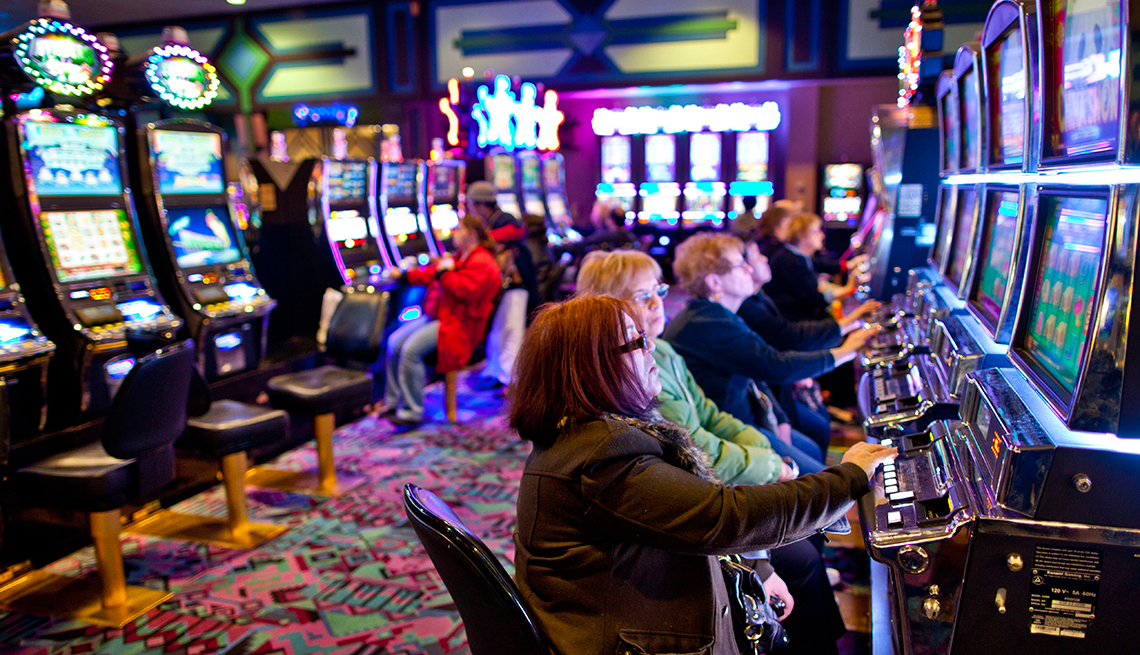The Cultural Impact of Casino Activities Across the Globe

Casino entertainment have long been a engaging form of entertainment, drawing numerous of players from different cultures around the globe. From the glitzy casinos of the Strip to the thriving gambling halls of Macau, these games serve as a common thread that brings together people across various backgrounds. The allure of fortune, strategy, and uncertainty entices not only those seeking to win money but also those seeking a shared experience.
The influence of casino games extends significantly past the gaming floor. They often represent the values and beliefs of the communities in which they prosper. Games such as seven-card stud, blackjack, and the spinning wheel have embedded themselves into the mosaic of cultural phenomena, influencing various aspects from movies to clothing. As we explore this intriguing intersection of gambling and life, we can better understand how gambling games shape and are shaped by the environment surrounding us.
Historical Development of Casino Activities
The origins of casino games can be followed back to ancient civilizations, where gambling in various forms was widely engaged in. In the East, around 2300 B.C., a form of lottery known as Keno was common, while in ancient the Roman Empire, soldiers would regularly wager on the results of their games. The idea of using chance for fun and profit evolved over the centuries, leading to the creation of more organized games. 9bet By the late Middle Ages, gambling houses began to surface in the continent, particularly in Italy, which introduced early incarnations of famous games still enjoyed today.
As betting increased popularity in the continent, the 17th and 18th centuries saw the rise of casinos as exclusive venues for betting. The initial official casino, the Ridotto, was established in the Venetian city in 1638, providing activities like Baccarat games and Faro games. This time marked a crucial turning point, as casinos began to welcome not just the elite but also the burgeoning middle class. The refinement of activities evolved, leading to the development of new guidelines and versions that improved the experience of players.
In the 19th century, the industrial revolution and transformations in social conventions further altered the environment of casino games. The arrival of roulette and modern slot machines drew a broader audience, and gambling establishments became seen as legitimate forms of recreation. This period witnessed the globalization of casino activities, as gambling houses spread from the continent to the Americas, culminating in the establishment of the famous Las Vegas Boulevard in the 20th century. The development of casino activities has progressed into the current era, including new technologies and digital platforms, making them available to a global market.
### Cultural Significance within Different Societies
Casino activities have significant cultural value across numerous communities around the world. Places like Las Vegas, the very core of the city is woven around gaming venues, where gaming is not just a recreational activity but a key aspect of social engagement and community interaction. The bright lights and dynamic atmosphere attract countless individuals, showcasing how games of chance can impact local economical structures and cultural uniqueness. This surrounding transforms the notion of recreation into an immersive encounter that influences fashion, melodies, and even cinema.
Conversely, some cultures approach betting with an air of caution, viewing it through the lens of morality and heritage. A case in point, in various Oriental societies, games like Mahjong and Pai Gow Gambling are rich with history and have significant social meanings. These games are often played during gatherings and celebrations, fostering collective connections and reinforcing kinship ties. The act of participating in these games goes above mere leisure, reflecting principles such as respect for elders and the significance of collective enjoyment.
Meanwhile, in continental countries such as the principality of Monaco and Italy, casino games serve as symbols of opulence and sophistication. The stylish atmosphere of these establishments attracts both tourists and locals, reinforcing a sense of status and rarity. The art of poker and the strategic features of games like the game of baccarat are appreciated, molding community relationships and establishing an attraction that fascinates a varied audience. This emphasizes how gambling can simultaneously echo and mold cultural attitudes towards danger, gain, and community interaction.
Economic Impact and Travel Industry
Casino games play a important role in the financial context of many regions, particularly those that depend significantly on visitor traffic. The revenue produced from gambling establishments fuels local economies, creating jobs not only within the casinos themselves but also in related sectors such as hotel management, dining, and entertainment. This surge of tourists, drawn by the allure of gambling and the overall casino experience, stimulates spending across multiple businesses, contributing to the economic vitality of the area.
The existence of casinos often leads to the development of facilities, including hotels, transportation systems, and leisure amenities. These developments are essential in enhancing the overall tourist experience, making locations more appealing to visitors. Additionally, many casinos invest in local communities through support of activities and charitable initiatives, further integrating themselves into the social fabric of the locality. Such investment not only supports economic growth but also fosters a positive reputation of the casino industry.
Moreover, the global popularity of casino games drives tourism competition, with locations vying to attract players from around the world. Iconic locations like Las Vegas and Macau have become identifiable with casino culture, drawing millions annually. This advantage encourages creativity and variety within the gaming industry, influencing trends in leisure and accommodation that resonate beyond their borders. The consequences of this visitor influx extend far, impacting local financial health and cultural exchanges on a worldwide scale.
